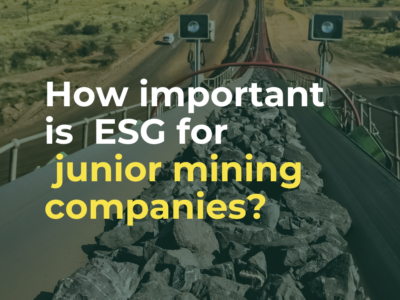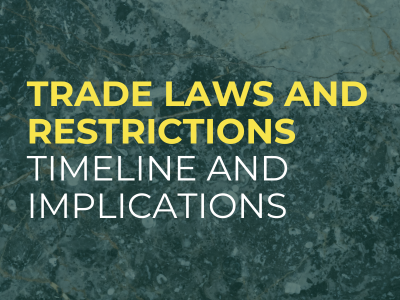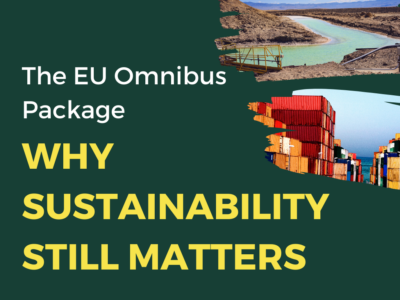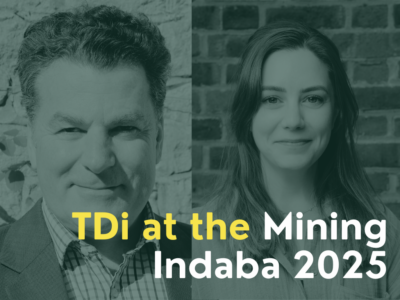
What’s the key to thriving as a junior mining operation?
The key to thriving as a junior mining operation? Embedding ESG practices into every step of your journey to build sustainable, fair, and profitable outcomes.
Junior mining companies in Africa are in a unique position to seize the opportunity offered by the continent’s vast resources of critical and strategic raw materials and utilise resources that are too small for major mining companies. In doing so, junior miners have the potential to act as a catalyst for growth in Africa, developing economies and accelerating job creation.
But what are the roadblocks in the way? Gaining the finance that they need to realise their ambitions is undoubtedly one of the biggest challenges facing junior mining companies. The resounding feedback from TDi’s investor clients is that investment is much more likely where an offtake agreement is in place. But before they will commit to an offtake agreement, many downstream companies now request evidence of strong environmental, social and governance (ESG) practices. What does this mean in practice for junior mining companies?
We spoke to our junior mining clients to find out about the key challenges they face in incorporating ESG risk identification and management into their business operations. In this article we explore six of the key themes that emerged, and examine how junior mining companies can best tackle these critical factors that impact their daily and long-term cash flow and shape their relationships with government, investors, and the wider landscape.
Community Rights and Engagement
Securing community consent and maintaining a social license to operate are critical for junior mining companies aiming to build sustainable operations. Community consent goes beyond regulatory approvals, requiring meaningful engagement with local stakeholders to address their concerns and aspirations. This process involves transparent communication, inclusive decision-making, and the development of mutually beneficial agreements.
Obtaining a social license to operate means earning the trust and acceptance of impacted communities, which hinges on demonstrating respect for their rights, cultural values, and livelihoods. Companies can achieve this by conducting thorough Environmental and Social Impact Assessments (ESIAs), implementing accessible grievance mechanisms, and providing regular updates on project developments. Building long-term partnerships with communities through consistent engagement and delivering tangible benefits can foster goodwill, reduce conflict, and ensure operational stability.
Community Investment
Community investment is a crucial yet often misunderstood challenge for junior mining companies. While such initiatives hold the potential to deliver tangible benefits to local populations, fostering goodwill and stability, many companies struggle to identify and execute impactful strategies. Successfully addressing community needs—such as education, healthcare, infrastructure, or livelihood development—requires a nuanced understanding of local contexts.
For junior mining companies, mastering the art of meaningful community investment is not just a responsibility—it’s a competitive advantage in demonstrating responsible mining practices and securing a license to operate.
Navigating Local Governance
Navigating local governance is a significant hurdle for junior mining companies,with its complexity often underestimated. Success requires more than compliance with national and local laws—it demands a deep understanding of the socio-political dynamics at play in the mining region. Governance challenges, such as corruption, weak enforcement, or fragmented authority, can derail operations if not proactively addressed.
Building partnerships with local governments, civil society, and community leaders is key to fostering trust, streamlining permitting processes, and creating shared benefits. However, many junior companies struggle to establish these relationships effectively, often overlooking the importance of transparency and accountability
Adopting internationally recognised frameworks like the Extractive Industries Transparency Initiative (EITI) or OECD due diligence guidelines can signal a commitment to good governance, reducing the risk of disputes and reinforcing a company’s reputation for responsible mining.
Security
Mining companies operating in regions with weak governance or social tensions often face significant security challenges, including the growing threat of terrorism in Africa. Balancing the protection of employees and assets with respect for human rights is a critical concern. To address these challenges effectively, companies must ensure that their security practices adhere to international human rights standards, such as the Voluntary Principles on Security and Human Rights. This includes providing comprehensive human rights training for both private and public security personnel, establishing robust oversight mechanisms to prevent abuses, and ensuring accountability for any violations.
Moreover, fostering trust with local communities by addressing grievances and developing inclusive security strategies can significantly enhance both operational stability and community relations.
Managing and reducing greenhouse gas emissions
With mining being responsible for around 7% of global greenhouse gas emissions, there is increasing pressure on the mining industry to decarbonise operations and adopt greener technology. To stay competitive, junior mining companies must address climate, and environmental challenges in their corporate strategies, reporting and high-level decision-making.
Some investors now require climate-risk disclosures, and these will only become more important as climate expectations mature. Many international investors and public finance institutions, including multilateral development banks, are Paris-aligned, which means that they won’t invest in mining that uses coal-powered plants to drive extraction. It’s therefore important that junior mining companies think carefully about their energy sources when planning ahead.
Data capture and communication with downstream customers
Downstream companies increasingly need robust verification of performance from junior miners as part of their offtake agreements, to fulfil their sustainability reporting requirements and communicate with their stakeholders. Junior mining companies therefore need to put the data reporting systems in place that will enable them to communicate this data quickly, accurately, and efficiently with their downstream customers. Tools such as TDi Digital’s comprehensive due diligence reporting platform is one way that this can be achieved.
The TDi Sustainability team has a long track record of supporting junior and emerging mining projects in diverse jurisdictions. We build practical, actionable strategies grounded in real-world experience in mining and community engagement, and our expertise helps companies align their operational practices with international ESG expectations. Get in touch to find out how we can help you and your business.
This article was written by TDi’s Elizabeth Arnott for the Mining Indaba Mining Pulse magazine, February 2025. See the full article here



